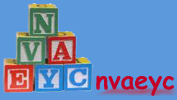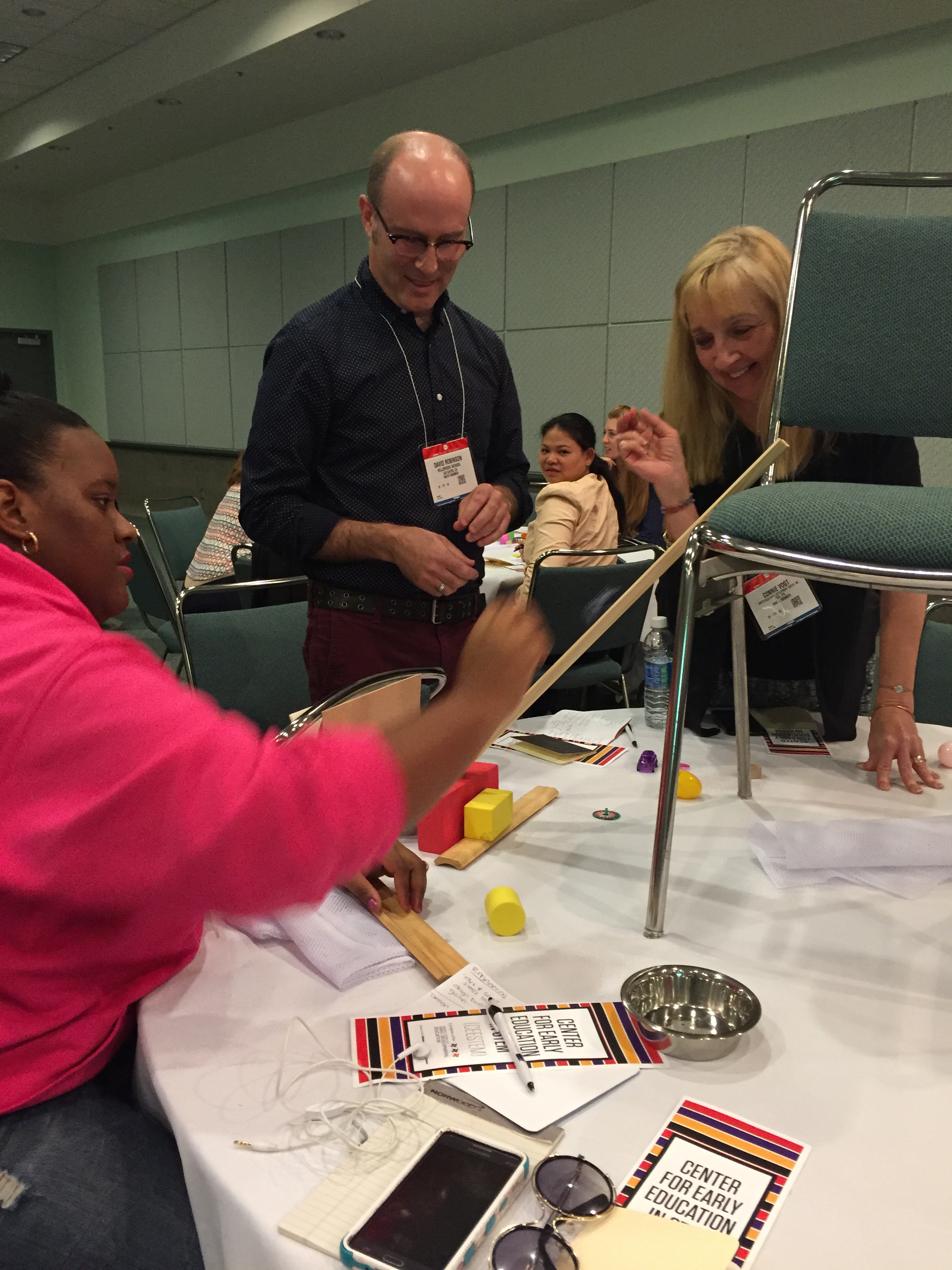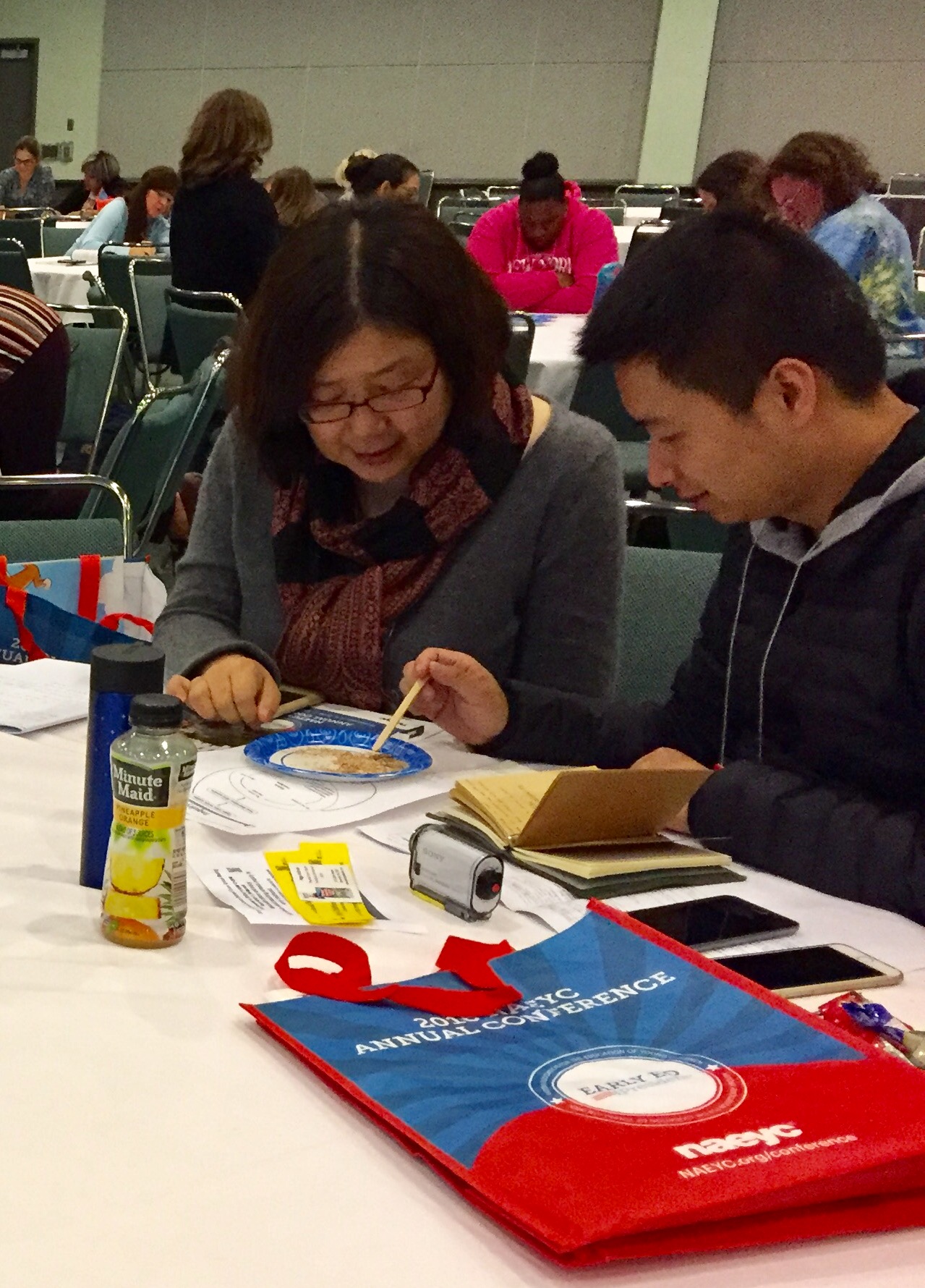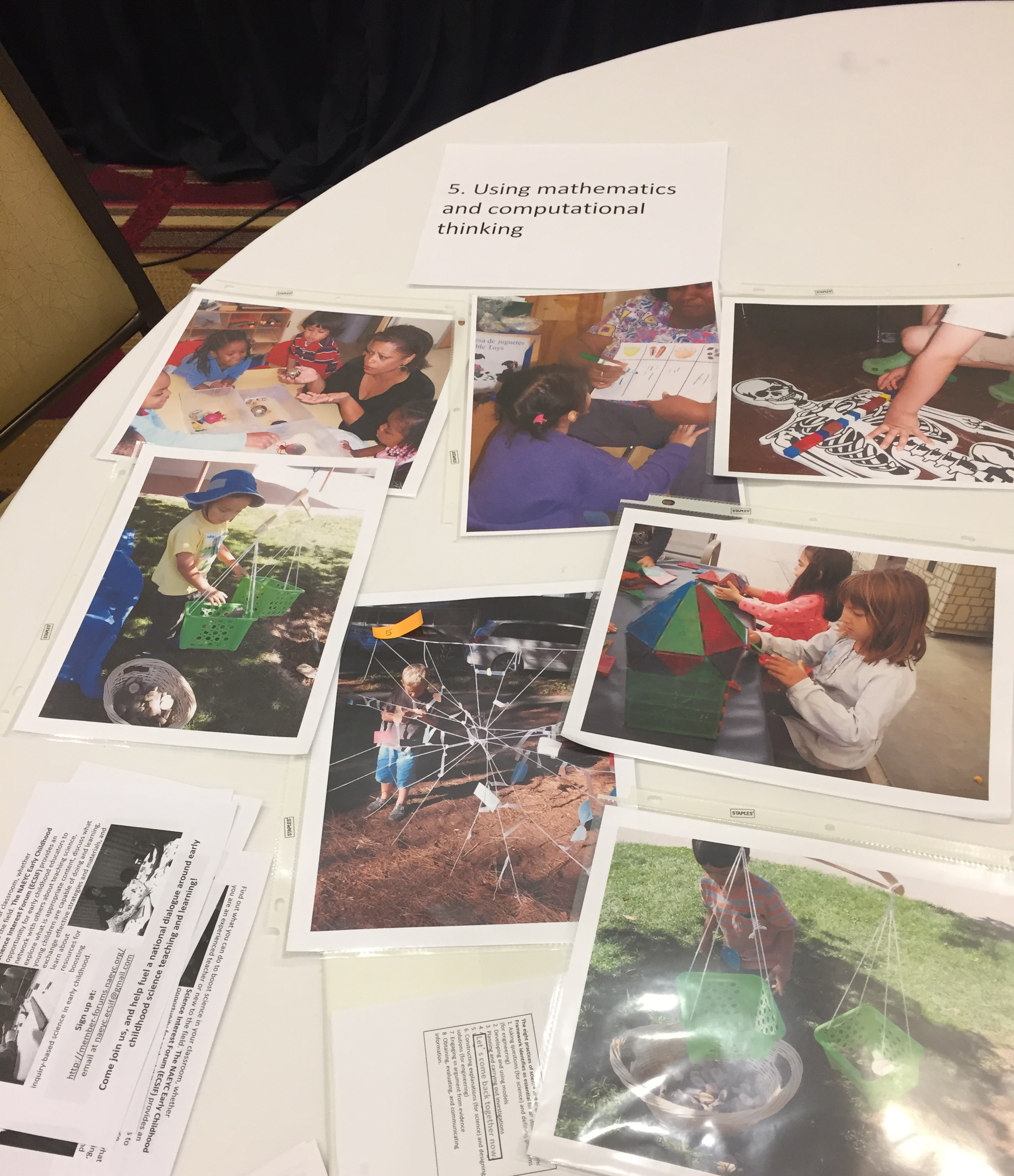Positive environments: Early childhood education conferences
By Peggy Ashbrook
Posted on 2016-11-18
Two early childhood conferences I attended this month, a national conference and a local regional conference, were awash with sessions on science, STEM, and STEAM education. Although science education is my main focus, I enjoy attending conferences because in addition to the terrific learning experience, it always lifts my spirits. Something about large numbers of people who are working for a better future for others (children and ultimately our world), and who begin with the perspective of the child, gathered together creates a positive environment. I’m looking forward to attending and participating in a National Science Teachers Association conference in 2017.
 At the 2016 national conference of the National Association for the Education of Young Children (NAEYC), I saw educators displaying the skills we hope to instill in our students—observing, wondering, co-operating with a group, talking about the evidence for their ideas (what they saw and did), analyzing data, considering alternative explanations, trying new ideas, and using literacy and mathematics skills. While they worked together they also were planning how to include all children in science investigations when they returned back to their programs.
At the 2016 national conference of the National Association for the Education of Young Children (NAEYC), I saw educators displaying the skills we hope to instill in our students—observing, wondering, co-operating with a group, talking about the evidence for their ideas (what they saw and did), analyzing data, considering alternative explanations, trying new ideas, and using literacy and mathematics skills. While they worked together they also were planning how to include all children in science investigations when they returned back to their programs.
A three-hour session was still not long enough for many participants! They wanted additional time to even more fully experience and absorb the work shared by presenters. I attended two such sessions. Dr. Beth Van Meeteren, Director, and Sherri Peterson, Program Assistant, from the Regents’ Center for Early Developmental Education at UNI, presenting “Ramps and Pathways: A fun integration of science, technology, engineering, and mathematics,” and Cindy Hoisington, Senior Curriculum and Instructional Design Associate, from the Education Development Center, Inc., presenting “Let’s talk about it: Science as a vehicle for promoting English language learning for dual language learners.” In both sessions there was much talk and a lot of hands-on exploration as we considered the value of, and how to, incorporate engineering re-design into education for children up to age 8, and how we can design science explorations to meet several needs of dual language learners.
Presenting a session at a conference is easier when I do it with colleagues! Marie Faust Evitt, author of Thinking BIG Learning BIG, known as Teacher Marie at Mountain View Parent Day Nursery, and Sandy Chilton, Instructional Specialist and former preK bilingual teacher in the Austin Independent School District, joined with me to help participants “Picture science in your classroom: Deepen those fun explorations by connecting with the new standards.” We showed photos of children using the eight practices of science and engineering (NGSS Lead States 2013) as they engaged in science activities and inquiry, and then, at their tables, everyone identified those practices being used by children in additional photos. There were live and rubber red wiggler worms at the tables for the group to observe as they considered a question, such as, “How do red wiggler worms move?” Once again, we all wanted more time!
Choosing a session to attend usually meant there was another interesting session I could not attend. Take a look at the 2016 NAEYC conference program and follow these steps to access handouts and resources:
- Search by topic track, presenter, keyword, or date to find the session you are interested in.
- Click on the title of the session to open up a pop-up menu. Links to download handouts for the session are listed on the bottom of the pop-up page.
For example, Cindy Hoisington’s presentation has six documents to download.
Being part of several NAEYC Interest Forums is important to me so I can stay current with the early childhood education research and discussion on the topics of interest to the forums. If you are a member of NAEYC you can join any of the forums, and if you are not yet a member, you can connect through the forum’s social media pages. As a co-facilitator of the NAEYC Early Childhood Science Interest Forum (ECSIF), I invite you to join and share your experiences to add your voice. The annual meeting of the NAEYC ECSIF is where we talk about our successes, share an interesting video for discussion, and ask for help and plan to support science education in early childhood.
 The Northern Virginia Association for the Education of Young Children like many organizations, connects with people both on a website and on Facebook. Their regional conference brought together sessions on policy, the importance of movement in educating the whole child, brain development, play-based curriculum, building workplace relationships, coaching, science inquiry, and welcoming all in inclusive classrooms, among others.
The Northern Virginia Association for the Education of Young Children like many organizations, connects with people both on a website and on Facebook. Their regional conference brought together sessions on policy, the importance of movement in educating the whole child, brain development, play-based curriculum, building workplace relationships, coaching, science inquiry, and welcoming all in inclusive classrooms, among others.
We heard comments supportive of the value of early childhood education from Outstanding Service to Young Children Award Recipient Linda K. Smith, the Deputy Assistant Secretary for Early Childhood Development, Administration for Children and Families, U.S. Department of Health and Human Services. She encouraged us to share the importance of our work with people outside of the profession.
The conferences affirmed my sense that making quality early childhood education available for all children will make our world a better place for all. And I learned more about teaching science concepts to young children and supporting their science inquiries into questions that interest them.
 The National Science Teachers Association is currently accepting proposals for the following conferences. What session will you propose to share your experiences and knowledge with other educators? Which conference will be possible for you to attend in 2017? To check out the NSTA submission guidelines, click here.
The National Science Teachers Association is currently accepting proposals for the following conferences. What session will you propose to share your experiences and knowledge with other educators? Which conference will be possible for you to attend in 2017? To check out the NSTA submission guidelines, click here.
6th Annual STEM Forum & Expo at Gaylord Palms Resort/Kissimmee, Orlando: July 12–14, 2017. Submission Deadline closes at 11:59 PM ET – Jul 14, 2017 Dec 5, 2016
Baltimore Area Conference: October 5–7, 2017. Submission Deadline closes at 11:59 PM ET Jan 17, 2017
Milwaukee Area Conference: November 9–11, 2017. Submission Deadline closes at 11:59 PM ET Jan 17, 2017
New Orleans Area Conference: November 30–December 2, 2017. Submission Deadline closes at 11:59 PM ET Jan 17, 2017
Atlanta National Conference: March 15–18, 2018. Submission Deadline closes at 11:59 PM ET Apr 17, 2017
Adding your voice on topics in science education that are important to you will support the rest of us as we build a strong system for early childhood education. Invite a colleague to put in a proposal with you—they will be honored to be asked.
Disclaimer: The views expressed in this blog post are those of the author(s) and do not necessarily reflect the official position of the National Science Teaching Association (NSTA).








